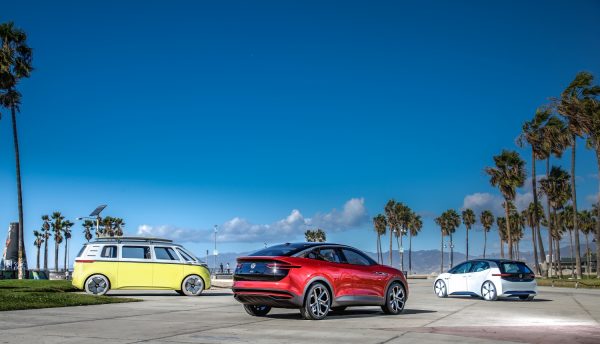Various sources within Germany have been reporting in recent days that Volkswagen is now mulling the replacement of CEO Matthias Mueller with the head of the VW brand, Herbert Diess. The idea is reportedly to start fresh after the latest round of scandals related to diesel vehicle emissions.
 Mueller’s contract as CEO at Volkswagen had been expected to run through the end of 2019, so a change now would represent a substantial reduction in his tenure at the head of the firm.
Mueller’s contract as CEO at Volkswagen had been expected to run through the end of 2019, so a change now would represent a substantial reduction in his tenure at the head of the firm.
Officially, the line from the company is simply that a change at the top of the company may be coming as part of a larger overhaul of management, but a number of unofficial sources (as quoted by Handelsblatt) have said Diess is likely to be appointed the new CEO soon.
“If Mueller did such a good job under difficult circumstances, why change horses in midstream? One hypothesis is that it all comes down to Diess being an outsider, someone who was not intimately involved in the plot to deceive regulators about diesel emissions,” Steve Hanley writes on CleanTechnica.
“For years, Volkswagen lied through its teeth to regulators and customers both at home and abroad about how clean its diesel cars were. It didn’t just have a fraught relationship with the truth; it obliterated any semblance of veracity in its dealings with governments and shoppers.
“Since the scandal broke in September, 2015, many of the company’s top executives have been tossed overboard. The fabled Martin Winterkorn, the man who humbled Ferdinand Piech in a boardroom coup, found himself out of a job mere weeks after the scandal broke. He was replaced by Matthias Mueller, a Volkswagen stalwart who stepped up to guide the company through the storm-tossed waters that surrounded it because of the diesel cheating mess. The company’s stock price crashed and sales took a serious tumble.
“But Mueller carried the mail for the company, returning it to robust profitability amid strong worldwide sales. In fact, its Q1 stats for 2018 are the best in company history. Nonetheless, Süddeutsche Zeitung is reporting that Mueller, whose contract runs through 2020, may be on his way out this Friday when the Volkswagen board meets again.”
Reuters provides more: “The move comes after Europe’s largest automaker has been hampered by infighting among its powerful stakeholders, which include the Porsche and Piech families, the German state of Lower Saxony, and labor leaders. … Mueller, a company veteran, was installed at short notice in 2015, a week after the company admitted to cheating US diesel emission tests, prompting criticism from some investors who said that only an outsider could rebuild trust in the business.
“He launched an ambitious reform plan, including investing billions of euros in electric vehicles, but has struggled to push through changes aimed at creating a more efficient and focused company. Amid opposition from labor leaders, Mueller failed to sell motorbike maker Ducati last year.
“It is unclear how soon Diess, a former BMW executive who joined VW in July 2015 and has clashed with the company’s labor leaders, might replace Mueller. Unions and Lower Saxony together have the power to block his appointment.”
Notably, this news comes as Volkswagen appears to be mulling a possible stock market listing of its truck and bus division — leading one to think that the different news items may be intimately linked together.
Continuing, Reuters reports: “But the persistent tug of war between its controlling families, unions and other stakeholders have made it difficult to drive through structural changes that investors have said are key to the company fulfilling its potential.
“Mueller has expressed frustration with the pace of Volkswagen’s transformation and more recently about his ability to turn around the brand’s image following revelations the company had tested toxic fumes on monkeys.”
It’s hard to get a clear sense of the motives of such a move (if it goes through), or of the politics driving them. Certainly, PR is a factor, especially if the decision is made to do a separate stock listing for the firm’s truck and bus division. But a replacement of the CEO could also signal that some of the primary shareholders and board members are perhaps unhappy with the direction of the company. Who can say as of yet? The threat of city-level bans of diesel cars in Germany has got to be unnerving some of them as well, and perhaps they saw Mueller’s responses as inadequate.